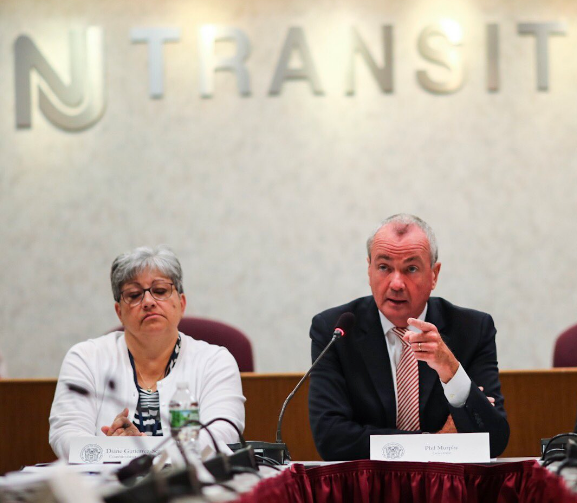
Trenton Democrats won’t face the voters again until next year (2025), but when they do, their recent decision to dedicate gas tax proceeds to bailout NJ Transit may come back to haunt them.
New survey results released on Wednesday by the FDU Poll show voters opposing Transportation Trust Fund revenues – ordinarily utilized for roads, highways, and bridges – by 25-points (59% to 34%).
Democrats narrowly supported the scheme (51% support the funding diversion bill which Governor Murphy signed at the end of March) but independents (60% to 36%) and Republicans (78% to 16%) are strongly opposed. Support for the legislation is underwater even in the urbanized North-Central counties of Essex, Hudson, Mercer, Middlesex, and Union (51% to 44% opposed) where NJ Transit usage rates are highest.
“Funding for NJ Transit has been a recurring issue in New Jersey,” said Dan Cassino, director of the FDU Poll. “Ticket fees are never going to be enough to support the system, but people who don’t use NJ Transit just don’t see a reason why they should have to pay for it.”
The new law will raise the gas tax by two cents annually for the next five years beginning July 2024. There will be an annual registration assessment for electric cars of $250; that fee will increase $10 per year through mid-2028. EV fees to support infrastructure projects are far more popular with voters (58% to 34%).
Click here to read the polling report.
“Despite its fiscal woes, New Jersey Transit receives revenue from a variety of funding sources, including $440 million in NJ Turnpike toll revenue in the 2024 fiscal year,” added Eric DeGesero, Executive Vice President of the Fuel Merchants Association of New Jersey whose organization sponsored the survey. “The majority of voters understand that it doesn’t make sense to siphon off more money from our roads and bridges to subsidize a fiscally dysfunctional NJ Transit system. We cannot jeopardize our roads and bridges or force drivers to pay more, especially since NJ Transit is used daily by only 1 in 10 New Jerseyans. NJ Transit needs to figure out how to live within its own means. “


